An exhibition of photographs by Nebojša Babić entitled “Together against the Dark Cancer” opened at Kalemegdan
Toward the National Day of the Fight Against Breast Cancer, which is celebrated every year on 20 March, the association “Women’s Centre Milica” organised an exhibition of photographs by Kalemegdan by Nebojsa Babić called “Together Against the Dark”. The exhibition shows the emotional story of nine women from various parts of Serbia, members of the association who went from being faced with cancer to victory over it.
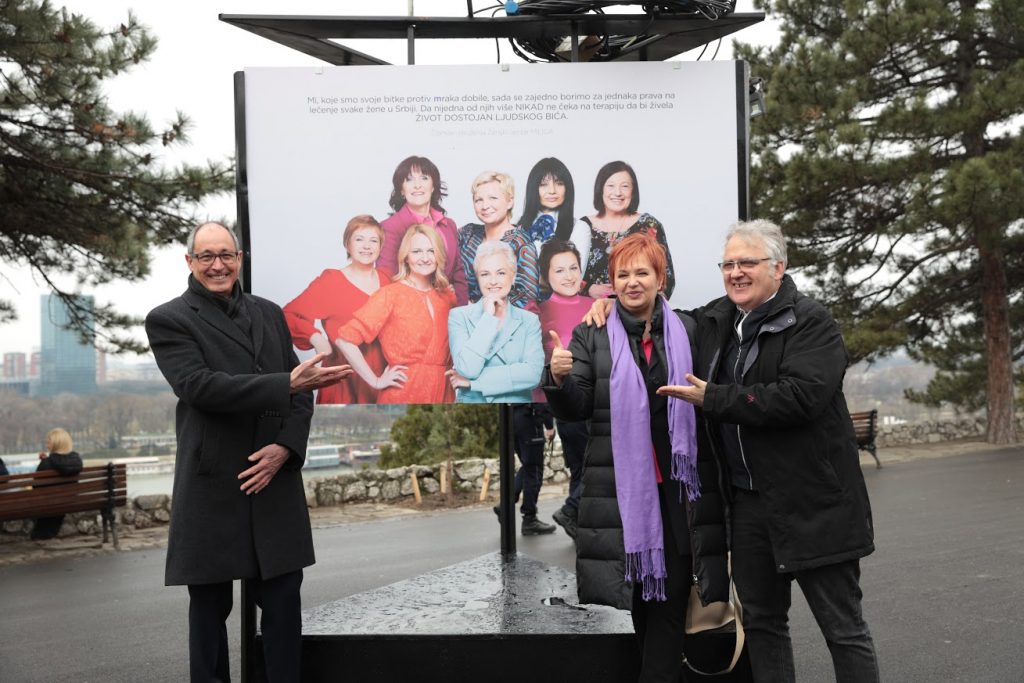
The author of the exhibition, Nebojša Babić, presented in a unique way the strength of women as they fought against cancer, but also the joy of life that they felt again. I had cancer but cancer didn’t have me; I got a second chance to love, dream, rejoice, help and share more. That’s why I want to inspire people. I want someone to look at me and say: I’m not giving up because of you!; Don’t be afraid, just believe, these are just some of the messages that the victorious women sent to all the other patients who are struggling with darkness, with the main message – We, who won our battles with cancer, are now fighting together for equal the right to treatment of every woman in Serbia. That none of them NEVER waits for therapy again in order to live a LIFE WORTH A HUMAN BEING.
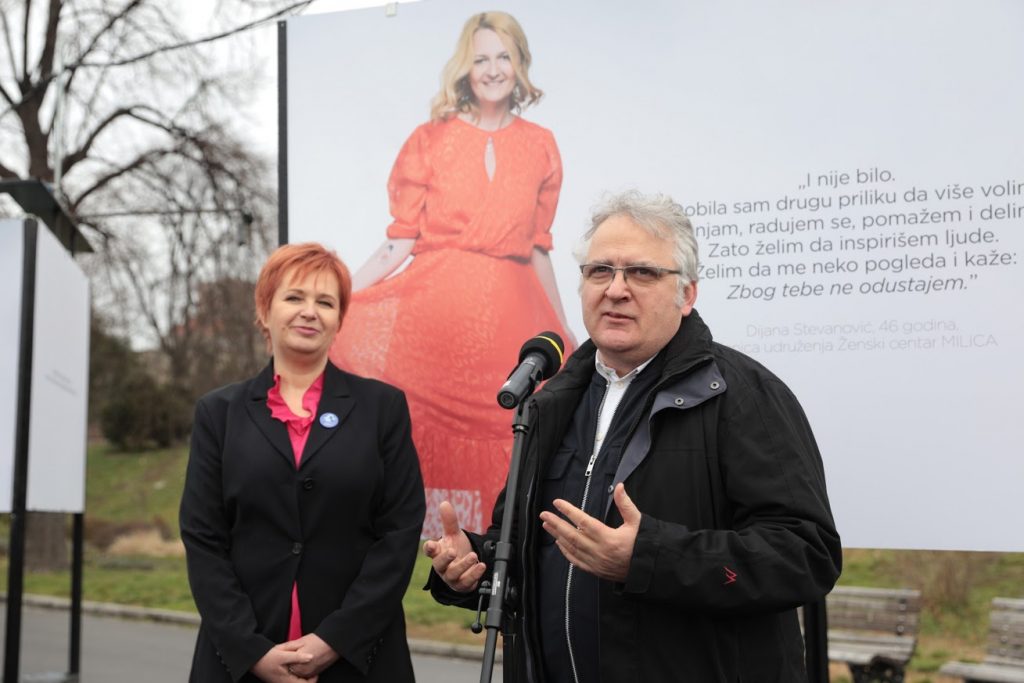
“In addition to the personal message it sends, the exhibition “Together against dark cancer” also sends another strong message – thanks to their strength, early discovery, but also the availability of innovative therapies, these women have beaten breast cancer, but now is the time for women who are still fighting dark cancer, to make their right to successful treatment with innovative therapies. That message reflects the unity of all of us” said Vesna Bondžić, president of the Women’s Centre Milica, which, in September last year, with the support of the Expert Council, handed over to the Health Insurance Fund of the Republic of Serbia the Initiative for introducing innovative therapies for HR+ HER2- metastatic breast cancer to the positive drug list.
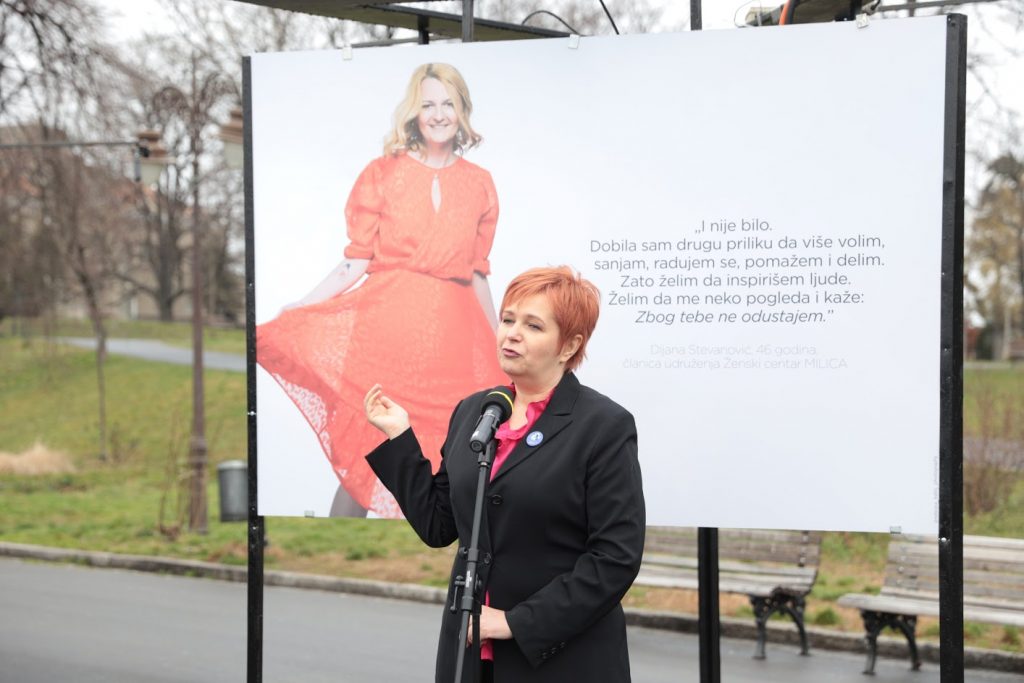
The Ambassador of Switzerland, H.E. Urs Schmid, stated that innovative therapies for the treatment of metastatic breast cancer are available to all patients in countries across Europe, including Switzerland. “The good news is that Serbia has also made significant progress in this regard. Large investments in innovative drugs have been noticed in the last few years, and thanks to the efforts of the Health Insurance Fund of the Republic of Serbia, new modern therapies for a certain type of metastatic breast cancer have become more accessible to patients” said Mr. Schmid.
However, in Serbia, the diagnosis of breast cancer is too late for 1,500 women every year, which is the reason for the fact that our country is in second place in Europe in terms of the death rate, despite the fact that it is among the countries at medium risk for the disease. Doctors agree that the main reason for the uncertain fight against metastatic breast cancer and such unfavourable statistics, in addition to late diagnosis, is precisely the unavailability of innovative therapies.
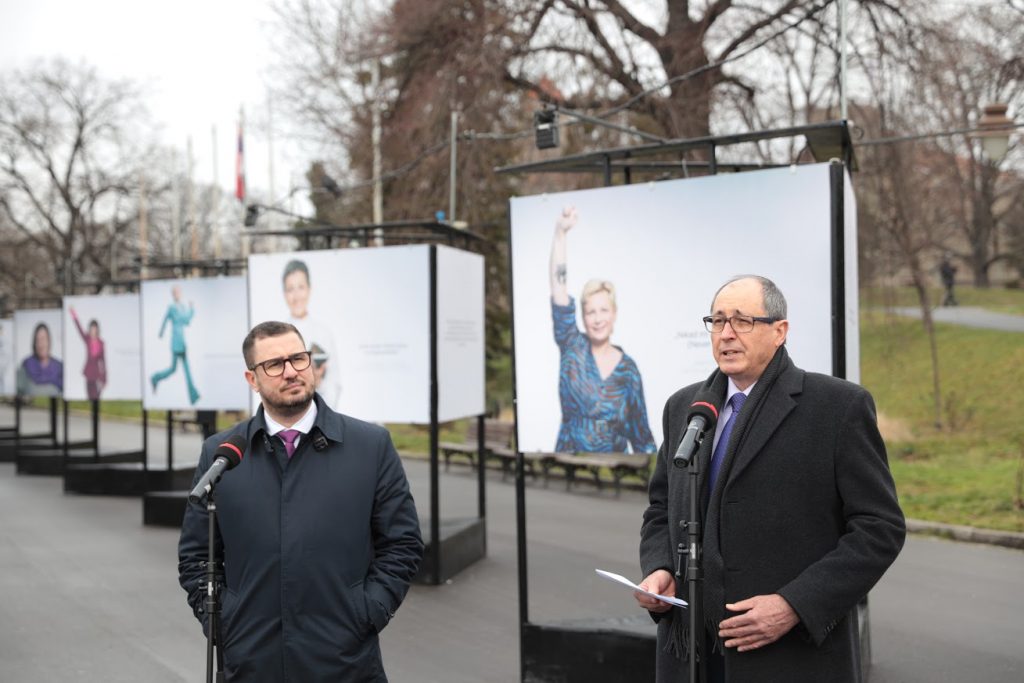
Professor Dr Lazar Popović, a doctor specialising in internal oncology at the Institute of Oncology of Vojvodina, pointed out that with these innovative therapies, it is now possible to greatly improve the quality and prolong the life of patients with metastatic breast cancer. “In medicine and pharmacy, a big step forward has been made in the treatment of metastatic breast cancer, in the type that occurs in 70% of patients – HR+ and HER2-. Thanks to the efforts of the Ministry of Health and the Health Insurance Fund of the Republic of Serbia, innovative therapies have been provided for the treatment of patients with HER2+ breast cancer. Unfortunately, for patients in Serbia with subtypes HR+ and HER2- of metastatic breast cancer, which is present in about 2/3 of cases, innovative therapies are still unavailable” dr Popović points out.
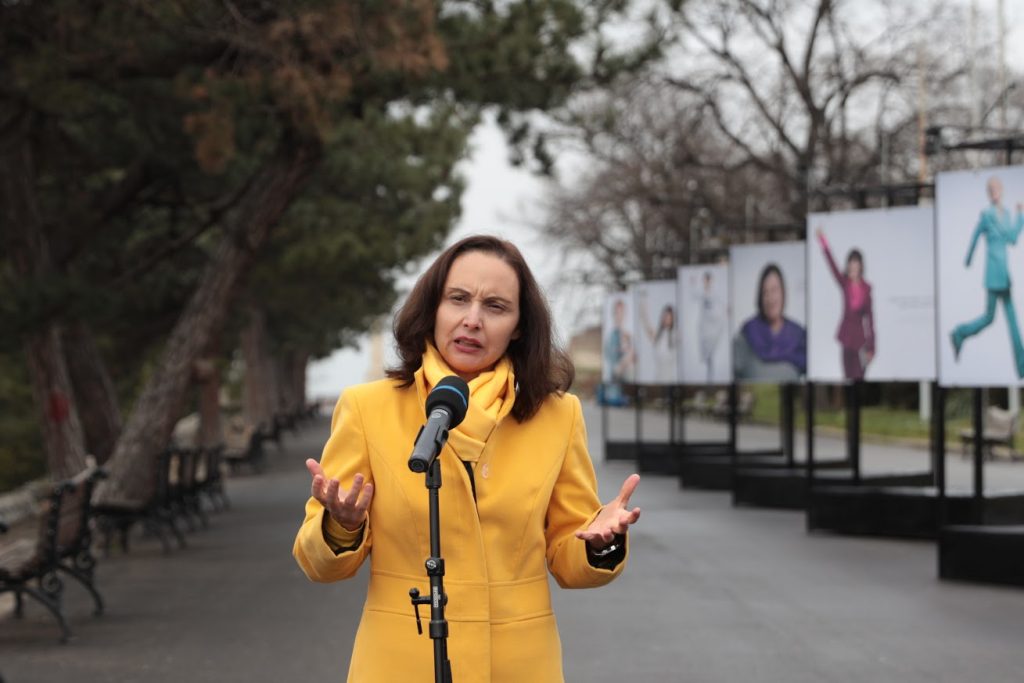
Professor Dr Marijana Milović-Kovačević, an oncologist at the Institute of Radiology and Oncology of Serbia, also points out that in addition to detecting breast cancer at an early stage, the use of innovative drugs is a crucial factor in improving these statistics.
“The patients with metastatic breast cancer must be treated for life, but they change their therapy several times. The reason for this is that over time they become resistant to standard therapies. Therefore, it is necessary to urgently introduce innovative therapies for metastatic breast cancer on a positive list of drugs, which will enable patients to live a longer and better life. Taking into account that these types of therapies are available in most countries in the region – Albania, Montenegro, Bosnia and Herzegovina, Croatia, Bulgaria, we believe that patients in Serbia deserve the same treatment and equal chances to successfully fight the disease” Dr Milović-Kovačević concluded.